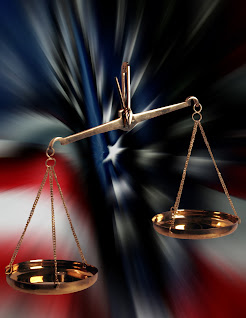Unlawful Retaliation: Adverse Employment Action
Under the Washington Law Against Discrimination, what is considered an "adverse employment action" when pursuing a claim of unlawful retaliation? Here's my point of view (NOTE: please read our DISCLAIMER before proceeding).
WASHINGTON LAW AGAINST DISCRIMINATION
Under the Washington Law Against Discrimination (WLAD), it is an unfair practice, with very few exceptions, for an employer to refuse to hire any person, to discharge or bar any person from employment, or to discriminate against any person in compensation or in other terms and conditions of employment because of age (40+); sex (including pregnancy); marital status; sexual orientation (including gender identity); race; color; creed; national origin; citizenship or immigration status; honorably discharged veteran or military status; HIV/AIDS and hepatitis C status; the presence of any sensory, mental, or physical disability; the use of a trained dog guide or service animal by a person with a disability; and state employee or health care whistleblower status.
UNLAWFUL RETALIATION
"To establish a prima facie case of retaliation [using the McDonnell Douglas 'evidentiary burden-shifting' framework] an employee must show three things:
(1) the employee took a statutorily protected action,
(2) the employee suffered an adverse employment action, and
(3) a causal link between the employee's protected activity and the adverse employment action.
Id. (citing Currier v. Northland Servs., Inc., 182 Wn.App. 733, 742, 332 P.3d 1006 (2014); see also Wilmot v. Kaiser Alum. & Chem. Corp, 118 Wn.2d 46, 68, 821 P.2d 18 (1991) ("establishing the retaliation test in the worker's compensation context")) (emphasis, paragraphs, and hyperlinks added).
ADVERSE EMPLOYMENT ACTION (ELEMENT #2)
The Washington State Supreme Court, in majority, has not clearly defined the term “adverse employment action.” However, Federal law and the United States Supreme Court offer some useful guidance on the issue of what constitutes an adverse employment action under WLAD.
The term "adverse employment action" is not defined under Title VII of the Civil Rights Act of 1964. "Not surprisingly, then, the question of what constitutes an adverse employment action has received significant attention from the federal courts, which have not reached a consensus on the issue." Islamic Society of Fire Department Personnel v. City of New York, 205 F.Supp.2d 75, 82 (E.D.N.Y. 2002) (internal citation omitted). "Some courts, such as the Fifth and Eighth Circuits, have held that an 'adverse employment action' relates only to 'ultimate employment actions,' such as hiring, firing, promotions and demotions." Id. (internal citation omitted).
However, the Ninth Circuit has adopted the U.S. Equal Employment Opportunity Commission's broad definition of an adverse employment action which takes an "expansive view" of what may be considered an adverse employment action. Ray v. Henderson, 217 F.3d 1234, 1243 (9th Cir. 2000). The U.S. Supreme Court recently confirmed the Ninth Circuit’s general approach to this question in Burlington Northern & Santa Fe Ry. Co. v. White, 548 U.S. 53, 126 S.Ct. 2405, 2409 (2006), (holding an adverse employment action must be harmful to the point that they could well dissuade a reasonable worker from making or supporting a charge of unlawful conduct by the employer) (emphasis added).
CONCLUSION
Under the Washington Law Against Discrimination, the term "adverse employment action" means an employment action that is harmful to the point that it could deter a reasonable employee "from making or supporting a charge or unlawful conduct by the employer."
Read More About This Topic
We invite you to read our article: Unlawful Retaliation: The Prima Facie Case.
Learn More
If you would like to learn more, then consider contacting an experienced Washington State Employment Discrimination Attorney as soon as possible to discuss your case. Please note: the information contained in this article is not offered as legal advice and will not form an attorney-client relationship with either this author or Williams Law Group; please see our DISCLAIMER.
–gw









